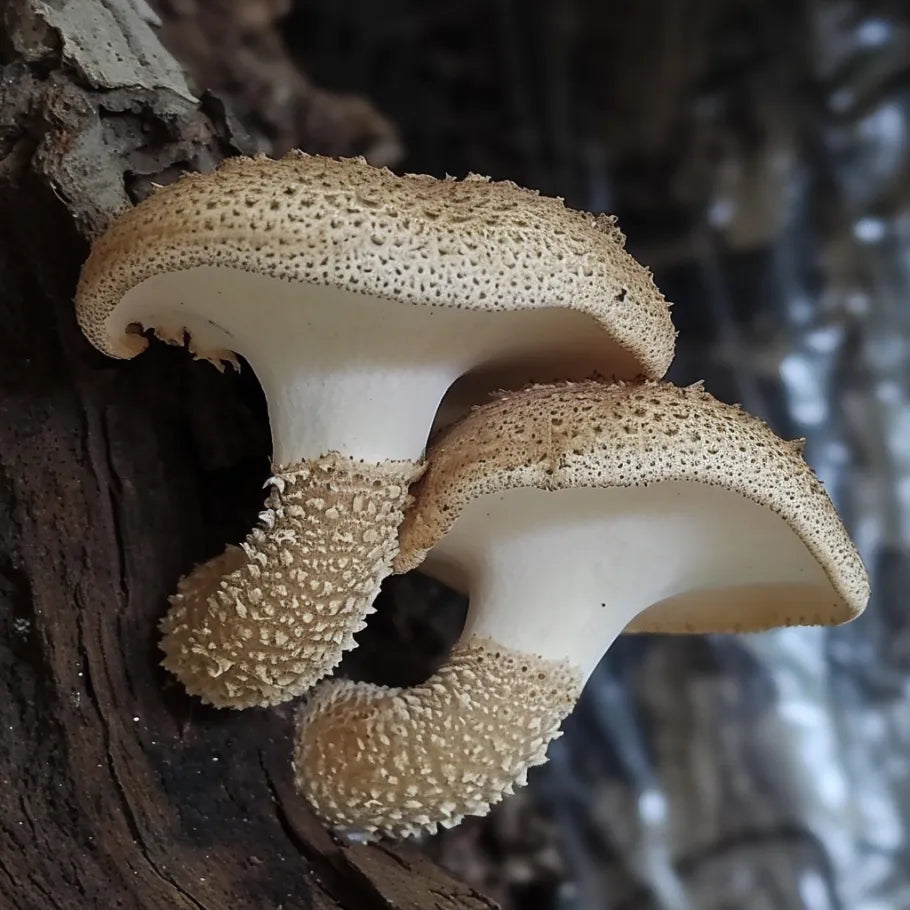
Unlock the hidden benefits of sheep polypore mushrooms
Sheep polypores are, without a doubt, one of nature's best-kept secrets when it comes to mushrooms. Found primarily in coniferous forests and deciduous woodlands, these fungi (also known as lamb or maitake mushrooms) hold various medicinal, culinary, and health benefits that often go unnoticed by the masses. It's time to dive into this world of sheep polypores and learn about their incredible properties.
A Nutritional Goldmine: The Culinary Value of Sheep Polypores
In comparison to popular proteins such as duck, beef, game, and shellfish, sheep polypores stand out with their exceptional nutritional qualities. They have a particularly low fat content, making them an ideal option for those looking to cut back on unhealthy fats. Additionally, they are also rich in dietary fibre, essential for maintaining proper digestion and gut health.
Moreover, these mushrooms provide ample amounts of protein, which is vital for every cell's growth and repair in the body. This makes them an excellent addition to vegetarian dishes, where traditional protein sources such as meat are excluded. Furthermore, these forest fungi shine with their high vitamin D content, necessary for optimal bone health and immune function.
Supporting Cancer Patients: Medicinal Properties of Sheep Polypores
One of the most famous attributes of sheep polypores is their potential role in cancer support. Thanks to specific compounds present in these mushrooms, such as grifolin and neogrifolin, they exhibit inhibitory activity on nitric oxide (NO) production induced by lipopolysaccharide (LPS) in RAW 264.7 cells.
These findings showcase the anti-tumor and immunomodulatory properties of sheep polypores, contributing to their positive effects on cancer patients. Although further research is still required to fully understand the extent and potential application of these benefits, it paints a promising picture for the role of mushrooms in cancer support.
Powerful Antioxidant Effects: The Sheep Polypore Advantage
Apart from their cancer-fighting properties, sheep polypores also boast remarkable antioxidant abilities. Due to the presence of punicalagin, a potent polyphenol, these fungi demonstrate excellent intracellular antioxidant activity.
- Antioxidant Properties
- Anti-Inflammatory Properties
- Anti-Viral Properties
- Anti-Proliferative Properties
- Anti-Cancer Properties
With all these qualities combined, sheep polypores offer incredible protection against oxidative stress and inflammation, reducing the risk of various chronic diseases associated with these factors.
Finding and Identifying Sheep Polypores: A Guide for Mushroom Foragers
The Habitats of Sheep Polypores: Where to find them
As previously mentioned, sheep polypores primarily thrive in coniferous forests and deciduous woodlands, although they can occasionally appear in other habitats as well. Scandinavia, in particular, is known for its abundance of these mushrooms due to the extensive forest coverage in the region.
Nickname and identification
Earning the nickname 'hen-of-the-woods' due to their appearance, identifying sheep polypores is relatively straightforward when equipped with proper field guides that focus on mushroom identification.
Understanding the specific features to look out for, such as their size, color, and growth patterns, is essential to ensure proper identification of these fascinating fungi in the wild.
Delicious Sheep Polypore Recipes for Every Palette
The culinary value of sheep polypores extends beyond their exceptional nutritional properties. These mushrooms lend themselves perfectly to a wide range of dishes, from vegetarian options to wild rice-based meals.
Whether you're preparing an elevated gourmet experience or simply want to enjoy these forest treats in their purest form, there's no shortage of delightful recipes that highlight the unique flavors and textures of sheep polypores.
In Conclusion: The Future of Sheep Polypore Research and Applications
While the current body of knowledge on sheep polypores already suggests impressive benefits, there's plenty more left to uncover. As research continues to explore the depths of this incredible fungus, it's likely that even more astounding properties will come to light. In the meantime, one thing is clear - the humble sheep polypore has undoubtedly earned its rightful place among the most fascinating and versatile forest organisms we've had the pleasure of experiencing.
0 comments
Disclaimer
The information in this article is for educational and informational purposes only. If this article discusses psychedelics, supplements, or wellness practices, it is not intended to promote, endorse, or encourage illegal activities or unverified health claims.
n0glitch does not sell or distribute psychedelic substances and does not provide medical, legal, or professional advice. Always consult a qualified healthcare provider before making health-related decisions.
Laws regarding psychedelics and supplements vary by country and region. Please research and comply with local regulations.












